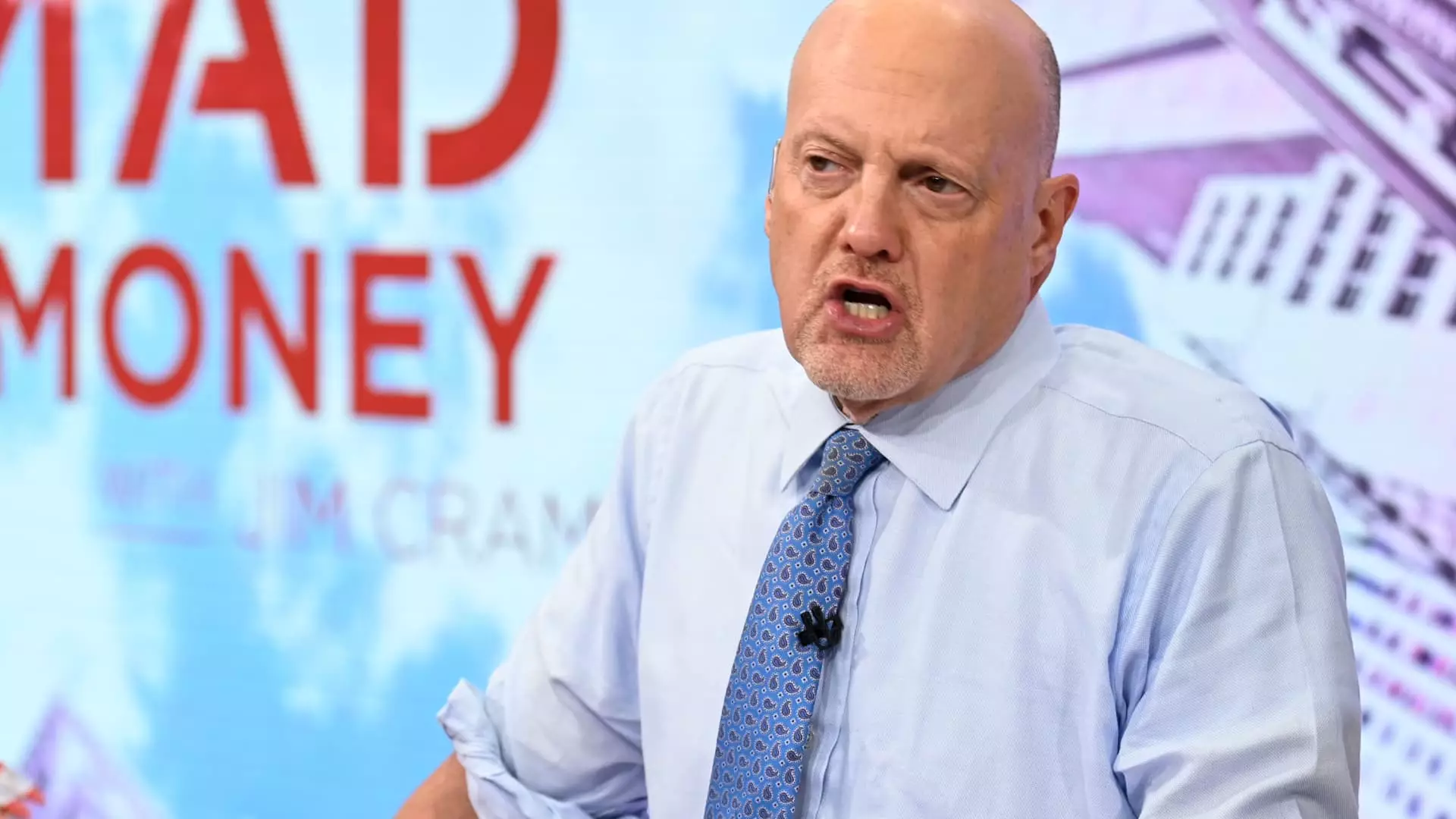In the turbulent waters of financial markets, few forces can turn waves into tsunamis quite like government policy. President Donald Trump’s recent imposition of tariffs has sent shockwaves through global equity markets, resulting in significant drops over consecutive trading days. Analysts like CNBC’s Jim Cramer have quickly pivoted to focus on upcoming earnings reports as a vital gauge of corporate resilience amid this upheaval. Yet, these reports may merely serve as a reflection of an economy grappling for balance, ensnared by a trade strategy that shows little rhyme or reason.
Tariffs are not just numbers; they’re forces that reverberate throughout the economy, affecting everything from costs to consumer behavior. When tariffs are enforced, they often lead to retaliatory measures from trading partners, further escalating tensions and impacting not only international relationships but also domestic economic health. It’s critical to remember that while fiscal policies are often touted as tools for growth, they can also become chains that bind economic agility and consumer confidence.
Corporate Earnings Amid Uncertainty
The upcoming week is poised to unravel the complexities of how businesses are maneuvering through these treacherous waters, with big bank earnings taking center stage amidst inflating inflation fears. Cramer points out that the direction of stock markets will largely hinge on President Trump’s ensuing decisions. Should he choose to soothe the mounting tensions with trading partners, we might see a lifebuoy tossed to sinking stocks. However, with a stubborn stance or lack of strategic foresight, we risk a repeat of the shocking market plummet reminiscent of Black Monday in 1987.
As companies like Levi Strauss brace for impending earnings announcements, they find themselves vulnerable to the consequences of tariffs imposed on their supply chains, particularly from countries like Japan and Mexico. Historical mishaps regarding guidance have led to punitive reactions from the stock market; if the expectations are not met, it’s the shareholders who will ultimately bear the brunt of a policy that seems to serve more as a political football than a path to economic resilience.
The Broader Impact of Tariffs on Consumers
Cramer highlights that retailers aren’t the only ones feeling the heat; entire economic sectors are intertwined in this precarious balance. Tuesday’s reports from Walgreens and Cal-Maine Foods will offer insights into consumer behavior and pricing, particularly as recent spikes in egg prices turn consumer attention to the stability of essentials. This intertwining of health care and agricultural prices showcases how deeply tariffs can impact daily life, weaving a narrative of inflation that becomes “sticky” — a term Cramer uses to describe the persistent rise in consumer prices. As prices climb due to tariffs, consumers face a double-edged sword; higher costs without matching wage growth lead to strained budgets and diminished spending.
Wednesday’s updates from Delta Air Lines and Constellation Brands provide further layers to this economic saga. As Delta cuts its outlook, signaling underlying weaknesses in the travel industry, Constellation Brands’ dependency on imports further illustrates the spillover effects of tariffs. A looming recession combined with the unpredictability of trade policies injects fear into the market, leading to a risk-averse mindset that stifles investment and growth.
The Federal Reserve’s Quandary
The complexity does not end with companies and consumers; the Federal Reserve now faces a significant dilemma. Amid rising prices driven by tariffs, interest rates remain in a precarious position. Cramer astutely suggests that the Fed finds itself in a quandary—they need to balance the tightrope of fostering growth while combating inflation. Interest rate cuts could provide some relief, but they also run the risk of igniting inflation further. The Federal Reserve’s actions will be crucial as the realism of the economic landscape evolves, against a backdrop of uncertainty fueled by federal decisions.
As we stand on the precipice of a financial reckoning driven by tariffs, analysts like Cramer can only hope that strategic pivoting from the President might illuminate a path away from what is quickly becoming a bear market. The culmination of poor policies and an unyielding stance could plunge us deeper into uncertainty, as the bear wrestles for survival against the looming threat of recession. It’s an alarming reality that merits both attention and critical scrutiny moving forward.

